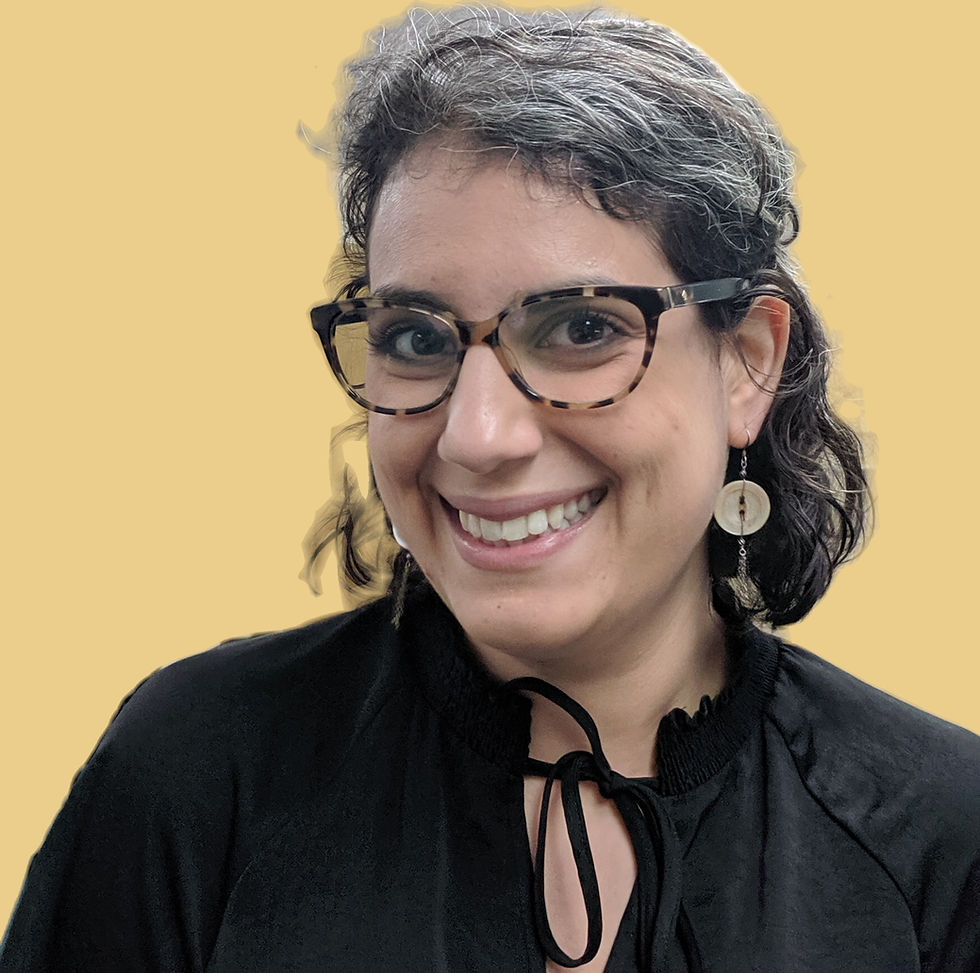A Few Words from Cassandra Tenonbaum

I will admit to sometimes feeling frustrated that I have to keep track of both the Jewish and secular calendars. On the other hand, sometimes it affords me opportunities that I wouldn’t have otherwise. For example, because I celebrate both Rosh Hashanah and New Year’s Day, I have twice the reminder to check in with myself, to evaluate and reset my intentions. During the High Holy Days this year, Rabbi Marantz emphasized the need to this kind of self-evaluation - called a chesbon ha’nefesh, or inventory of the soul, in Judaism - through the lens of inclusivity. He invoked the belief that we are all made b’tzelem Elohim, in God’s image, and therefore worthy of respect, dignity, and compassion. But what exactly does that mean? Do we literally look like God? And if so, what does it mean that people come in all shapes, sizes, and hues? Does it mean that we move and sound and behave like God? If that is the case, what to make of people who move and sound differently from us, who speak another language, who do not speak at all?
This paradox - what does it mean to be made in the image of something that cannot be seen - has fascinated Jewish scholars for centuries. Our Reform tradition teaches us to think of b’tzelem Elohim metaphorically rather than literally. We are like God because of our intellectual and moral capacities; we therefore honor this special nature through our deeds rather than our outward appearances. Hillel teaches us that this consists of not doing things to others that we would not want done to us. While I appreciate that in phrasing this as a negative and not a positive mitzvah (“don’t do this,'' as opposed to “do that”) Hillel is also telling us not to assume that others want what we do. But his vague abstractness can be a bit of a hurdle when trying to put this mitzvah into practice. At the risk of sounding arrogant, I would like to propose a positive spin on Hillel’s insight: to honor our nature as b’tzelem Elohim, we must first and foremost treat everyone with respect.
That is still pretty vague. After all, what feels respectful to me might feel very strange or even disrespectful to you. And yet, we all know what it feels like when do don’t receive the respect we believe we are due. Our stomach churns, we flush, we change our posture to take up more physical space. Our thoughts become critical, judgmental, harsh:
“How dare you?”
“I can’t believe she is wearing that.”
“He’s so stupid.”
It’s a tragic irony that all people crave respect, and when we feel disrespected our instinctive response is often to behave in a way that signals to others that we don’t merit it. As a result, we often find ourselves trapped in a cycle of disrespectfulness that can spread from one relationship to another and from one person to the next. In 2016, the Journal of Applied Psychology published the results of a Michigan State University study, which found that when people are exposed to uncivil behavior, the resulting emotional depletion makes them more likely to behave rudely themselves (for more information, here’s a link to MSU’s press release: https://msutoday.msu.edu/news/2016/how-incivility-spreads-in-the-workplace/).
So how do we overcome this counterproductive impulse? Arguably in this instance, the best defense is a good offense. Put another way, it is much easier to set the intention of treating everyone with respect and avoiding the toxic cycle all together. While this may seem a daunting prospect, in practice this goal is achievable through small shifts in behavior. One such shift is to create a practice of greeting others first. Growing up in the rural south, this was part of the culture and something I did reflexively. I noticed several years ago that it was something I had fallen out of the habit of doing, and made a conscious effort to re-engage in it. The effect was striking. In my experience, a smile or friendly “hello” is as contagious as a snide remark. In making that small gesture of respect to the people I meet, be they friends or strangers, I am honoring both the part of them and the part of myself that is made b’tzelem Elohim, and signaling that I want to focus on what we share in common rather than our differences.
As we celebrate a legacy of the Civil Rights Movement on Monday, January 20th, I invite you to use this opportunity to engage in a little chesbon ha’nefesh of your own. How do you honor your b’tzelem Elohim? What are some of the ways that you extend respect to others? How does this make you feel? Are there opportunities that you are missing? By consciously choosing to focus on what Dr. King referred to as “not the color of [one’s] skin, but the content of [one’s] character” we can continue his mission and engage in tikkun olam.
Happy MLK Day!
Cassandra Tenonbaum


























